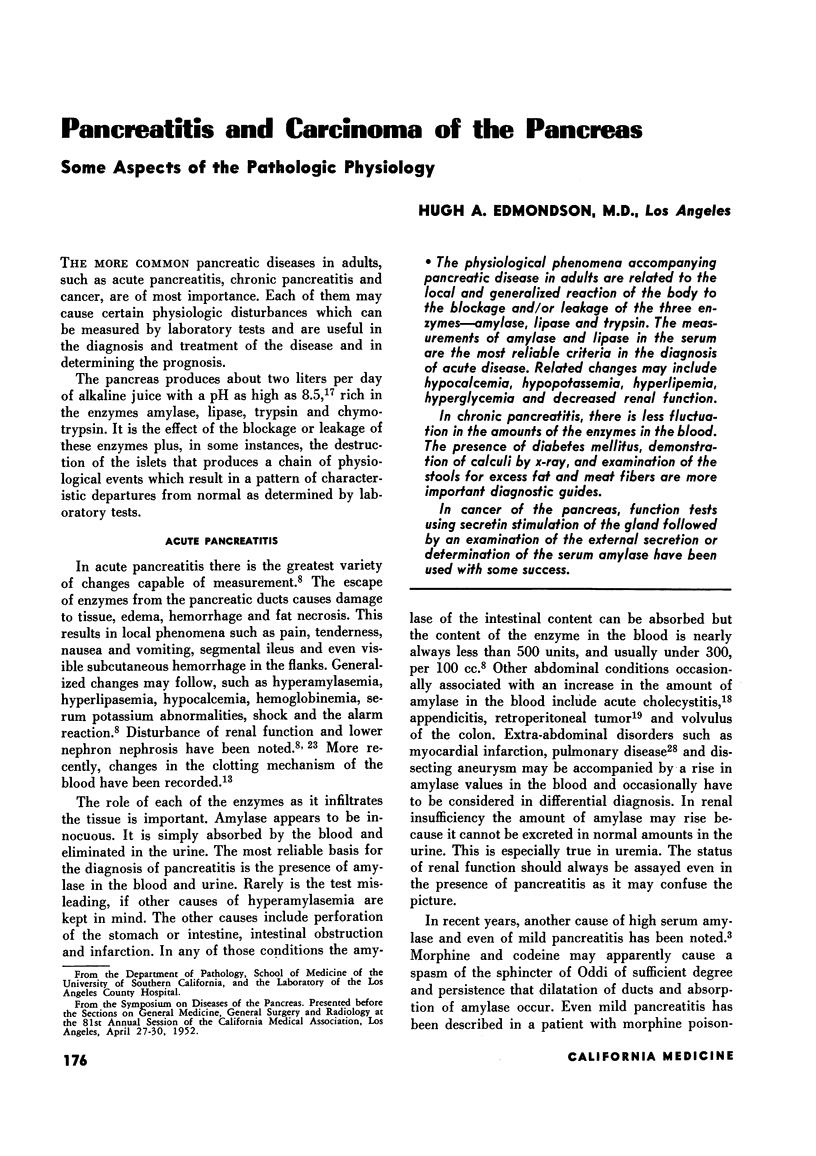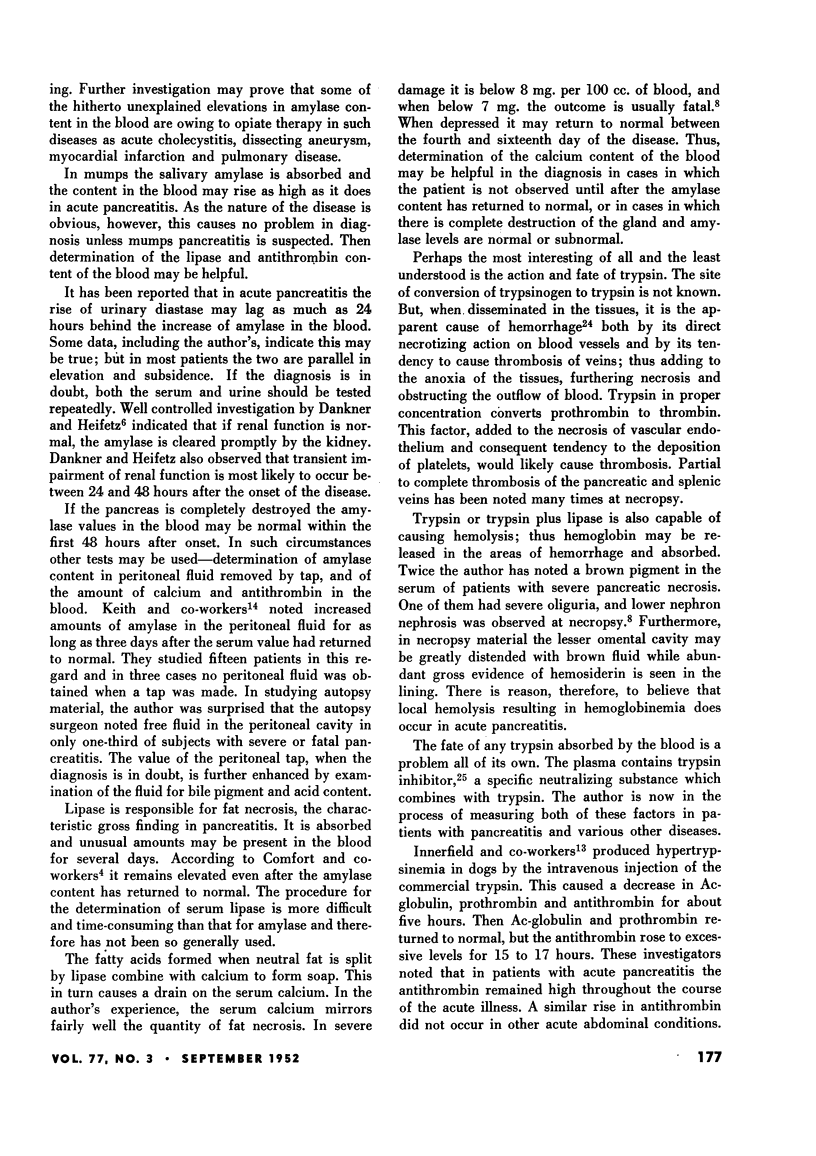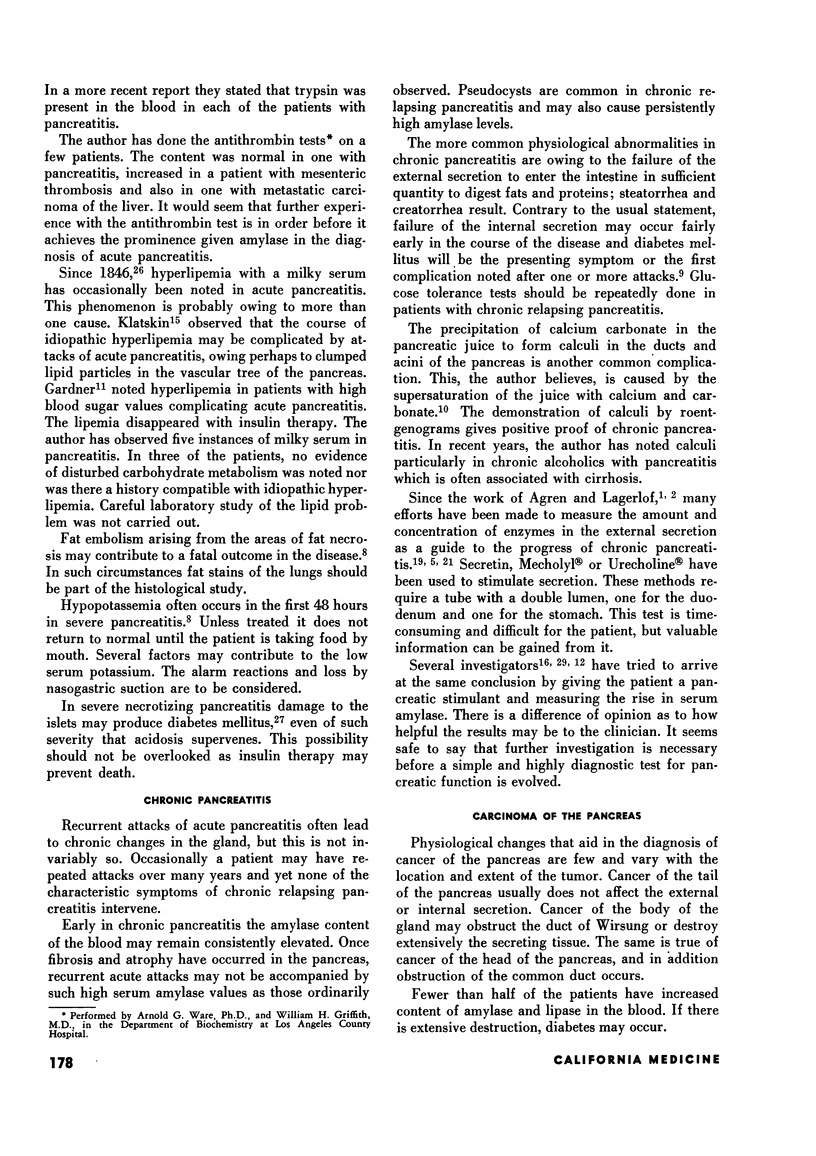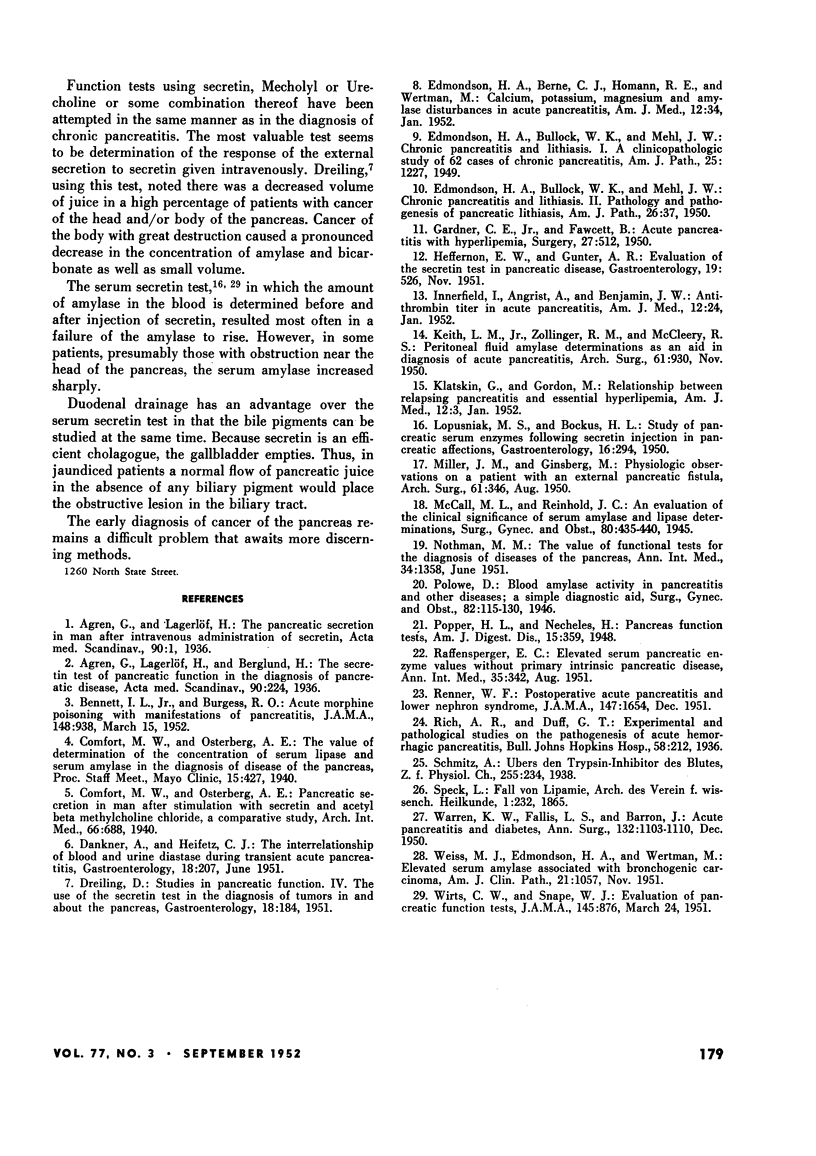Abstract
The physiological phenomena accompanying pancreatic disease in adults are related to the local and generalized reaction of the body to the blockage and/or leakage of the three enzymes—amylase, lipase and trypsin. The measurements of amylase and lipase in the serum are the most reliable criteria in the diagnosis of acute disease. Related changes may include hypocalcemia, hypopotassemia, hyperlipemia, hyperglycemia and decreased renal function.
In chronic pancreatitis, there is less fluctuation in the amounts of the enzymes in the blood. The presence of diabetes mellitus, demonstration of calculi by x-ray, and examination of the stools for excess fat and meat fibers are more important diagnostic guides.
In cancer of the pancreas, function tests using secretin stimulation of the gland followed by an examination of the external secretion or determination of the serum amylase have been used with some success.
Full text
PDF





